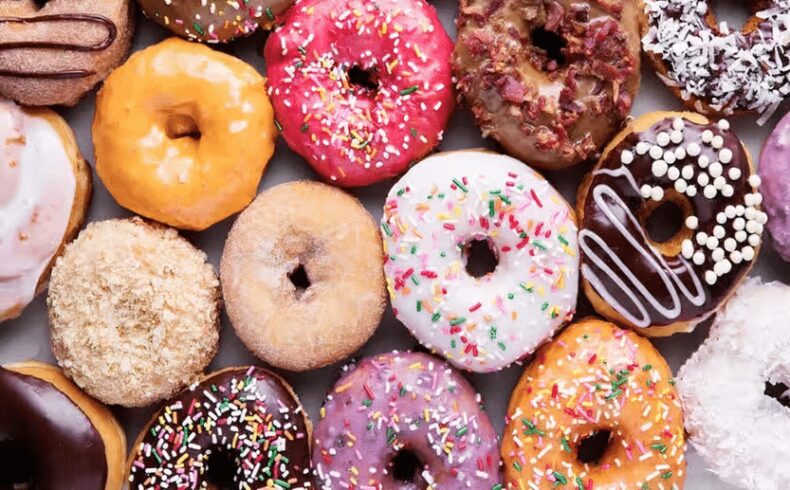In a nutshell
- A new study claims that consuming sugary, high-fat foods frequently can rewire your brain to crave them more.
- Excessive fat and sugar intake activate the part of the brain that is crucial in managing our reward responses and motivational drive.
- The affinity for high-fat, sugary meals will endure, thereby raising the risk of binge eating, weight gain, and metabolic dysfunction.

Ever wondered why you can’t resist grabbing that chocolate bar when you pass that aisle in the supermarket, why you can’t break the habit of binging donuts and ice cream no matter how many times you decide to eat healthy. Well, a study has found out that these sweet treats are manipulating your brain to prefer them more and trigger your sweet tooth.
The research published in the journal Cell Metabolism proved that frequent consumption of high-fat, high-sugar foods can activate the dopaminergic system of the brain, a region responsible for motivation and reward. As a result, the preference for a low-fat diet reduces and one starts to crave unhealthy treats.
Western diets that were predominantly full of fat and sugar promoted excess calorie intake and weight gain. The study intended to seek out the direct effect of such diets on neurobehavioral adaptations.
Our findings show that eating high-fat, high-sugar snacks daily lower the desire for low-fat foods and rewires the brain reward network to enhance response to palatable foods, said the study’s co-lead Marc Tittgemeyer, Ph.D., a researcher at the Max Planck Institute for Metabolism Research.
A learned behaviour for sugary and high-fat foods
To study what prompts people to reach for high-fat foods, researchers tested different diet interventions and their health effects, including body weight, metabolic status, and overall dietary pattern, in 49 subjects.
The participants were divided into two groups: one received a daily pudding with a lot of fat and sugar, while the other received a pudding with the same number of calories but less fat. The snack was assigned in addition to their regular diet.
Throughout the study, the team monitored each participant’s brain activity.
They discovered that the brain’s response to a sweet, fatty diet was highly active in the group assigned high-fat pudding.
The dopaminergic system, in particular, lit up, implying that the brain’s reward pathways were altered, thus increasing the preference for high-fat foods.
Fat and sugar consumption activate “the so-called dopaminergic midbrain, a part of the brain that is crucial in managing our reward responses and motivational drive, said Tittgemeyer.
The researchers suggest that the affinity for high-fat, sugary meals will endure, thereby raising the risk of binge eating, weight gain, and metabolic dysfunction.
Excessive intake of high-fat meals might raise one’s risk of heart disease, obesity, and diabetes over time, according to Elaine Hon, RD, a clinical dietitian at Stanford Health Care.
Evolutionary reasons
The findings of the study are also justifiable from an evolutionary perspective. The study suspects that brain networks developed in a period when food was scarce and necessitated a means to eat beyond homeostasis, which merely satisfied energy consumption. Hence, the observed behavior might be an adaptive response to metabolically healthy organisms.
A reward system is appropriate for this, encouraging consumption for hedonistic reasons while permitting fat storage, Tittgemeyer added.
However, research also warns that prolonged exposure to fatty foods will lead to long-lasting changes to neural circuits that promote weight gain and metabolic dysfunction.
Since it is a learned behavior, luckily, it can be unlearned as well. Similar frequent exposure to a healthy, wholesome diet can rewire brain circuits that promote longing for healthy food choices. Even though it might not be an easy shift, it is a habit well worth building.













